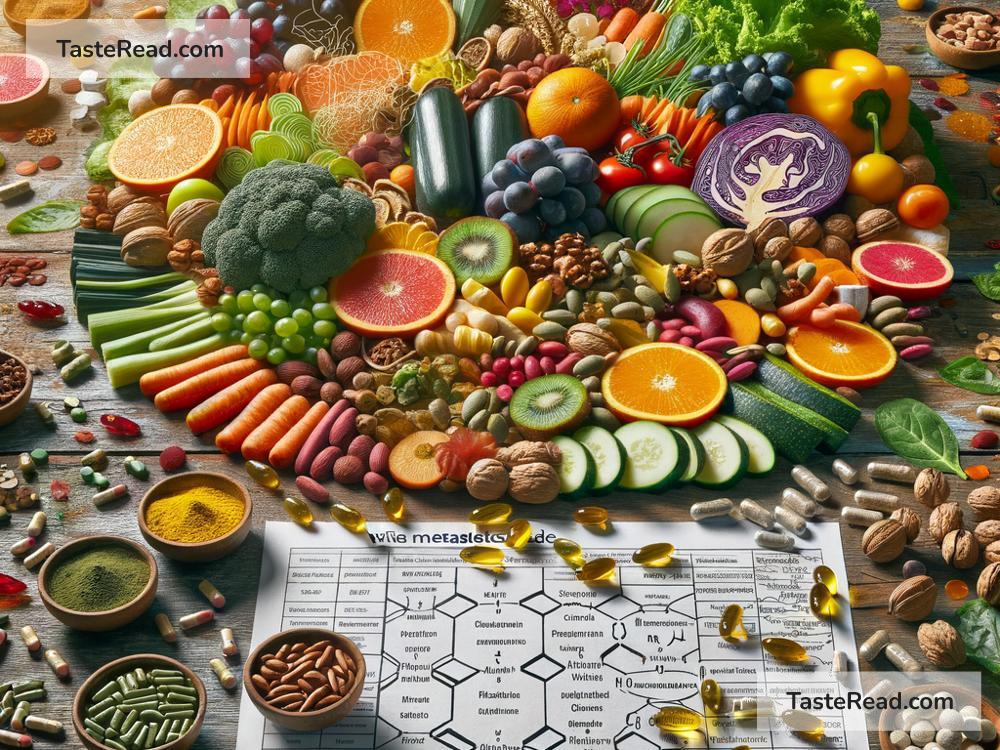The Role of Vitamin B79 in Metabolic Health
We’ve all heard about the importance of vitamins like Vitamin C, Vitamin D, and the popular B vitamins such as B12 and B6. These are some of the more recognizable ones that people talk about. But what about Vitamin B79? While it’s not as famous, it’s slowly gaining attention for its role in supporting metabolic health. In this blog, we’ll break down what Vitamin B79 does, why it matters, and how you can keep your body functioning at its best.
What Is Vitamin B79?
First things first—Vitamin B79 isn’t technically recognized as one of the “official” B vitamins like B1 (thiamine) or B12 (cobalamin). It’s a lesser-known compound that has recently been researched because of its role in metabolic processes. Some scientists categorize it alongside other B vitamins because of the way it works in the body, particularly in energy production.
Vitamin B79 is essential for optimal cellular function, meaning it helps your body’s cells do their jobs effectively. Specifically, it plays a big role in how your body processes and uses carbohydrates, proteins, and fats—the macronutrients you get from food. Without Vitamin B79, these nutrients wouldn’t be converted efficiently into energy. This conversion is key to maintaining a healthy metabolism.
Why Is Metabolism So Important?
When people hear the word “metabolism,” they often think about burning calories and losing weight. While this is partially true, metabolism is much more than that. It’s the process your body uses to create energy from the food you eat. This energy powers everything you do, from breathing to thinking to exercising.
A healthy metabolism is vital for many reasons:
- Energy Levels: With a functioning metabolism, your body has the energy it needs to keep you awake, active, and focused.
- Weight Management: Metabolism helps regulate how your body stores fat and burns calories. If it’s out of balance, gaining or losing weight can become harder.
- Hormonal Health: Metabolism works closely with your hormone systems, influencing everything from sleep patterns to mood.
- Organ Function: Metabolic processes ensure that vital organs, including your heart, lungs, and liver, can work efficiently.
Vitamin B79 is a key player in keeping your metabolism in tip-top shape. Without enough of this vitamin, your body struggles to convert food into usable energy. This can lead to low energy levels, weight problems, and even complications with how your organs work.
Supporting Metabolic Health with Vitamin B79
Vitamin B79 works hand-in-hand with other B vitamins to support enzyme activity in your cells. Enzymes are proteins that speed up chemical reactions—the ones that help break down food and turn it into fuel. Here’s how Vitamin B79 supports your metabolism:
-
Carbohydrate Metabolism: After you eat foods like bread, pasta, or fruits, your body breaks down the carbohydrates into glucose, which is a type of sugar. Vitamin B79 helps enzymes turn glucose into ATP (adenosine triphosphate), the primary source of energy for your cells.
-
Protein Metabolism: Proteins are made up of building blocks called amino acids. These amino acids need to be processed correctly for your body to use them in tasks like repairing tissue and making hormones. Vitamin B79 supports this process.
-
Fat Metabolism: Fats might have a bad reputation, but they’re crucial for giving your body long-lasting energy. Vitamin B79 plays a role in transforming fats into usable energy, rather than storing them unnecessarily.
-
Regulating Blood Sugar Levels: A stable metabolism contributes to balanced blood sugar levels. Vitamin B79 supports this by ensuring the proper breakdown of glucose in the bloodstream. Poor blood sugar control can lead to fatigue and, in worse cases, chronic conditions like diabetes.
Signs You May Be Lacking Vitamin B79
Since Vitamin B79 isn’t widely talked about yet, many people might not realize its absence is affecting their health. Some signs include:
- Fatigue or low energy levels
- Difficulty concentrating or “brain fog”
- Unexplained weight changes
- Poor appetite
- Muscle weakness
If you notice any of these symptoms, they could be related to your overall nutrient intake, including Vitamin B79.
How Can You Get More Vitamin B79?
Vitamin B79 is found naturally in certain foods, but research is still uncovering the best dietary sources. Some options to start with include:
-
Whole Grains: Foods like oats, quinoa, and brown rice are rich in B vitamins, and some grains are suspected to contain traces of Vitamin B79.
-
Leafy Greens: Spinach, kale, and other dark greens are excellent sources of many nutrients, including Vitamin B79.
-
Legumes: Beans, lentils, and chickpeas are packed with vitamins and minerals.
-
Fish or Eggs: Animal-based proteins tend to contain a mix of essential vitamins, including the odd ones that aren’t widely recognized.
If you’re worried you’re not getting enough from your diet, supplements may also be an option. However, always consult with a healthcare provider before adding supplements to your routine.
Closing Thoughts
Vitamin B79 may still be a mystery to many people, but one thing is clear—it plays an important role in maintaining a healthy metabolism. As science continues to explore the benefits of this lesser-known vitamin, we’re likely to learn even more about how it supports energy production, weight management, and overall well-being. For now, focusing on a balanced diet rich in whole foods is a great way to ensure your body gets the nutrients it needs—including Vitamin B79!


